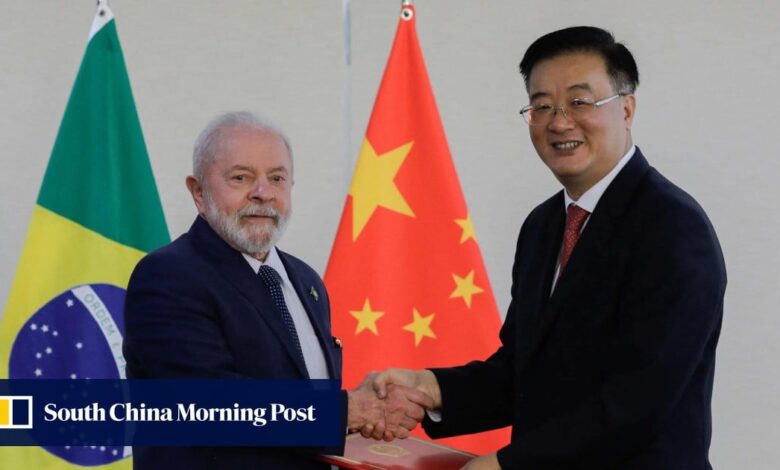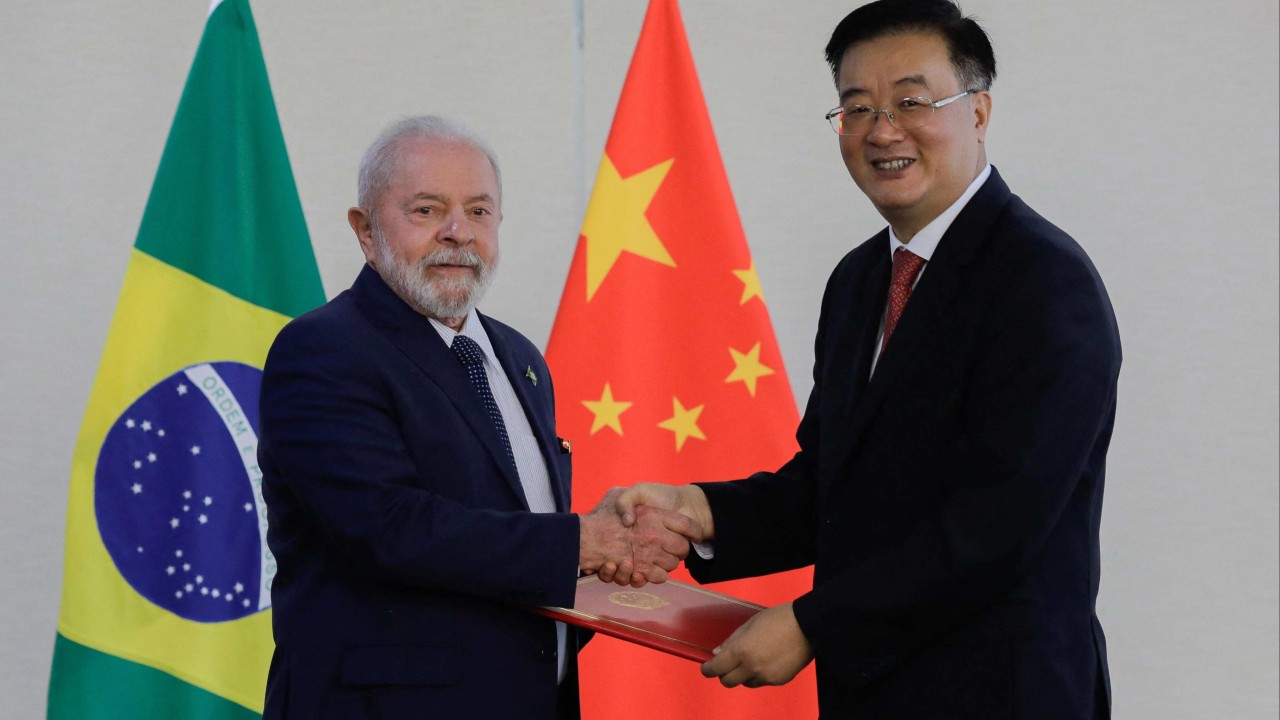China’s ambassador to Brazil makes Belt and Road Initiative pitch, appealing to ‘higher level’ of ties

[ad_1]

Speaking during an annual meeting of the China-Brazil Business Council in São Paulo, Zhu Qingqiao outlined several advantages for South America’s largest economy to become an official member of the global strategic initiative.
China sought to leverage belt and road programmes to foster port services integration, launch pilot zones for e-commerce collaboration and broaden market access for digital trade, the senior Chinese envoy said.
In anticipation of next year’s 50th anniversary of diplomatic relations between China and Brazil, Zhu described the relationship as “resilient and meaningful”, calling it a strong foundation to tackle challenges and pursue mutual development. For this reason, he said, belt and road involvement should rank high on both countries’ agenda.
“[The Belt and Road Initiative] is poised to elevate our mutually advantageous collaboration to a new level,” he added.
“Neo-industrialisation in the 21st century should not simply replicate the conventional model, but strive for superior-quality development, guided by the principles of innovation, coordination, sustainability, openness and inclusiveness.”
Zhu’s comments marked China’s first public overture inviting Brazil to partake in the initiative, although discussions have taken place for several years.
‘Freewheeling days’ are over? China’s belt and road plan makes financing pivot
‘Freewheeling days’ are over? China’s belt and road plan makes financing pivot
Sources have indicated that scepticism has persisted within Brazilian circles regarding the tangible benefits of membership, such as whether investment or trade would benefit significantly.
Eduardo Saboia, a diplomat working on Asia and the Pacific at the Brazilian foreign ministry, said on Monday he had “taken note” of the Chinese ambassador’s pitch.
Brazil’s president tells UN that Western groups are failing developing nations
Brazil’s president tells UN that Western groups are failing developing nations
But Saboia made clear that Brazil could attain belt and road opportunities within the scope of an existing “comprehensive strategic partnership agreement” signed by Brasilia and Beijing in 2012.
“This is a stable and enduring alliance between two nations that holds significant influence in the Global South.”
The Brazilian Ministry of Foreign Affairs could not immediately be reached for comment on the Chinese ambassador’s invitation.
[ad_2]
Source link





